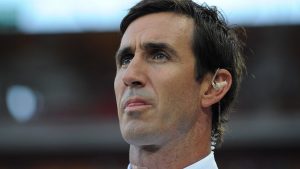Reports this week that the UK government may be backing away from a proposal to loosen copyright rules for AI companies may be welcome news for creators and copyright owners, but the trade body for the UK’s recorded music industry is cautioning against premature celebrations.
The proposed amendments to the UK’s new data law “should not be taken as a gain for the creative industries,” said Sophie Jones, Chief Strategy Officer at the British Phonographic Industry (BPI).
“We would expect a deep analysis of the economic impact of the government’s proposed weakening of copyright as a normal part of any policy process, so we do not consider these as concessions,” Jones said in a statement sent to the media.
“However, we look forward to providing our expertise on the music industry and copyright as these reports are compiled.”
A report in The Guardian on Wednesday (April 30) indicated that the Labour government of Prime Minister Sir Keir Starmer may be softening its stance on a proposal, tabled earlier this year, to allow AI developers to use copyrighted materials without permission to train their models, unless copyright owners expressly “opt out” of having their content used.
The proposed changes are scheduled to go to a vote in Parliament next week.
According to The Guardian, ministers have drafted amendments to the data bill that include promises to conduct an economic impact assessment of the controversial changes and publish reports on transparency, licensing and data access for AI developers.
“Crucially, and most urgently, we urge the government to prioritize the introduction of transparency measures,” Jones said, adding that “this is not a copyright matter, but a key requirement that will stimulate a dynamic licensing and right enforcement system that the government itself is ambitious to see, and will enable both the creative and AI sectors to grow in tandem.”
“We would expect a deep analysis of the economic impact of the government’s proposed weakening of copyright as a normal part of any policy process, so we do not consider these as concessions.”
Sophie Jones, BPI
That comes in the wake of heavy criticism of the bill from many in the creative industries, including prominent musical artists such as Elton John and Paul McCartney, who criticized what they see as a serious undermining of creators’ rights and ability to earn a living from their work.
The heads of the three music majors – Sony Music Group Chairman Rob Stringer, Universal Music Group Chairman and CEO Sir Lucian Grainge, and Warner Music Group CEO Robert Kyncl – all joined a campaign to oppose the changes, which the government drew up as part of an effort to make the UK more competitive in the race to develop AI.
BPI aren’t the only ones to take a skeptical view of the government’s last-minute changes. According to The Guardian, the opposition Liberal Democrats announced plans to table their own changes that would require AI companies to adhere to existing copyright law.
Meanwhile, cross-bench peer Beeban Kidron said the amendments did not “meet the moment” and that the government’s plan to study the potential impact of the changes to copyright law amounts to “pushing the issue into the long grass with reports and reviews.”
Ed Newton-Rex, the former VP of Audio at Stability AI who resigned over the company’s insistence that using copyrighted material without permission is “fair use,” said there was “a ton of evidence” showing the proposed changes were “terrible for creators.”
“We don’t need an impact assessment to tell us this,” he said, as quoted in The Guardian.
Newton-Rex raised the alarm in January when an “Opportunities Action Plan” for AI development was delivered to Parliament, including the proposal to loosen copyright law. He was among the organizers of the “silent album,” a protest against the proposed changes that involved more than 1,000 artists, including Damon Albarn, Kate Bush, and Annie Lennox.
“We could get all the benefits of the Action Plan, and be a leader in AI, without upending copyright law,” Newton-Rex said earlier this year.
The UK data bill comes at a time when AI companies are increasingly pushing back against the creative industries in the ongoing dispute over the use of copyrighted works in training AI.
Both Google and OpenAI, two major players in the AI space, argued in submissions to the UK government that the proposed changes don’t go far enough, and AI companies should be free to use copyrighted works without restrictions.
But perhaps the most extreme position on the issue was taken recently by former Twitter CEO Jack Dorsey, who declared in a social media post last month: “Delete all IP law.”
The proposal was endorsed by Elon Musk, who replied: “I agree.”Music Business Worldwide







